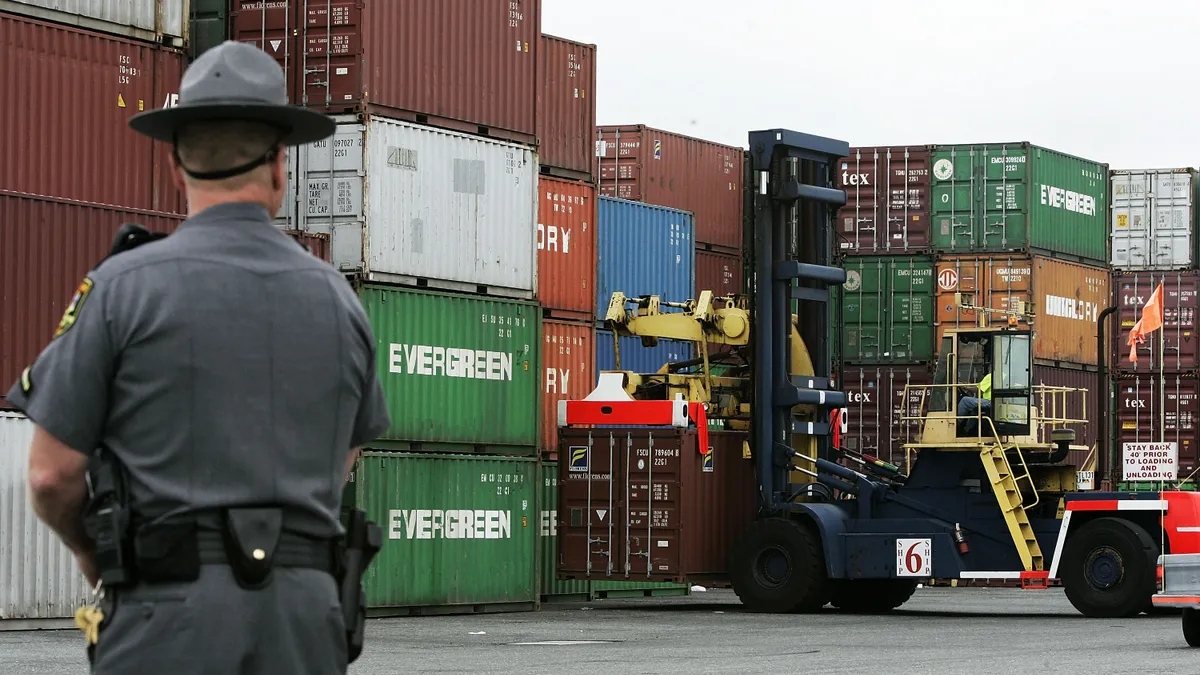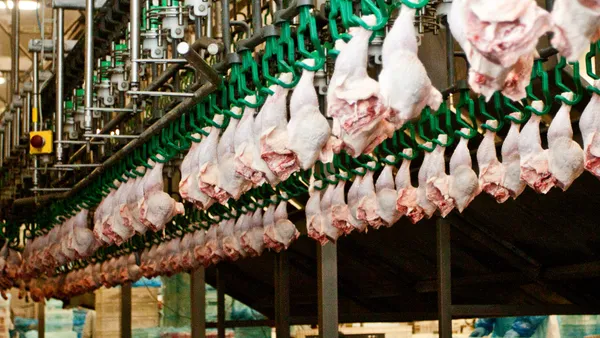Dive Brief:
- The U.S. Department of Agriculture said last Thursday that it is seeking to raise fees for its agricultural inspection program, which ensures imports do not contain pests or diseases that could harm the food industry.
- The agency's Animal and Plant Health Inspection Service is proposing to hike fees beginning Jan. 1. By 2027, current fees will be more than double for cargo entering the U.S. by truck, rail and ship.
- APHIS has struggled to keep up with administration costs as agricultural imports have substantially grown over the past decade. The agency said higher fees are needed "so that the program can be sufficiently funded to prevent service interruptions."
Dive Insight:
The cargo inspection program's fee structure was last updated in 2015, and changes in shipping practices have made it easier for carriers to avoid paying.
Fees are based on the number of ships, trains or other modes of transportation that arrive at a point of entry into the U.S., whether that be a port or border crossing. However, as carriers expand capacity within their existing infrastructure, they can carry more goods without having to pay more in fees.
APHIS underestimated the number of ship arrivals expected by at least 50% since 2015, due in part to the adoption of megaships. Meanwhile, rail and trucking companies' moves to carry larger containers – and more of them – have required the agency to expend additional resources with less money.
"Many railcars are now multi-unit, with double stacked containers that carry around six times the capacity of the railcars on which APHIS based its existing fees," the agency said in a news release. "The trucking industry has adopted double-trailers and longer 53’ and 48’ trailer trucks, which has led to an increase in inspection costs without a corresponding increase in fees."
APHIS ran an average annual deficit of over $166 million for fiscal years 2017 through 2019, and the agency said a lack of funds is jeopardizing the "ability to effectively administer and carry out the program."
The agency, in conjunction with Customs and Border Protection, inspected and cleared 2.82 billion pounds of fresh fruits and vegetables from 19 countries in 2022, according to APHIS' impact report. The agency also ramped up enforcement activity this year to prevent African Swine Fever from entering the country, in addition to addressing the spread of Highly Pathogenic Avian Influenza in the U.S.
APHIS is accepting public comment on the proposed fee increases until Oct. 10.
APHIS' current and proposed fee structure
| Fee Service Activity | Current | Jan. 1, 2024 | Oct. 1, 2024 | Oct. 1, 2025 | Oct. 1, 2026 | Oct. 1, 2027 |
|---|---|---|---|---|---|---|
| Commercial Vessel (per vessel arrival) | 825.00 | 3219.29 | 3302.23 | 3386.23 | 3471.18 | 3557.18 |
| Commercial Truck (per truck arrival) | 7.29 | 11.40 | 12.40 | 13.45 | 14.50 | 15.55 |
| Commercial Rail (per railroad car arrival) | 2.00 | 5.81 | 6.51 | 7.23 | 7.97 | 8.72 |
| Commercial Aircraft (per aircraft arrival) | 225.00 | 288.41 | 309.00 | 330.07 | 351.64 | 373.68 |
| Air Passenger (per passenger arrival) | 3.83 | 4.29 | 4.44 | 4.60 | 4.76 | 4.93 |
| Cruise Vessel Passenger (per passenger arrival) | 1.68 | 1.20 | 1.25 | 1.29 | 1.34 | 1.39 |
| Treatments (per hour) | 237.00 (per treatment) | 232.97 | 253.19 | 273.90 | 295.12 | 316.83 |
SOURCE: USDA Animal and Plant Health Inspection Service











